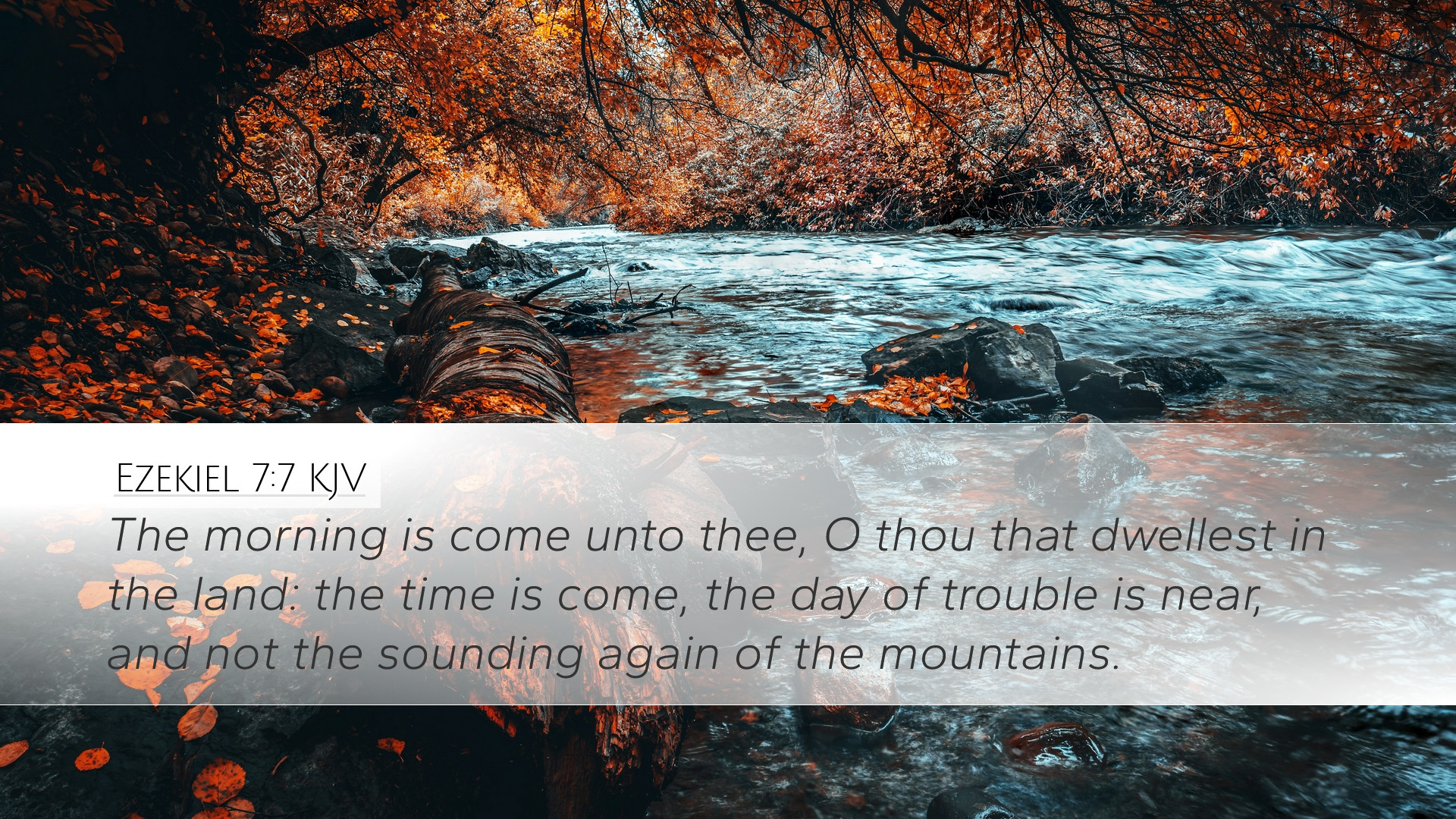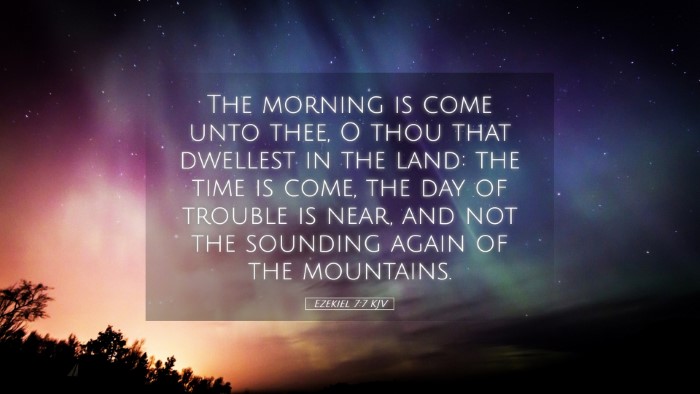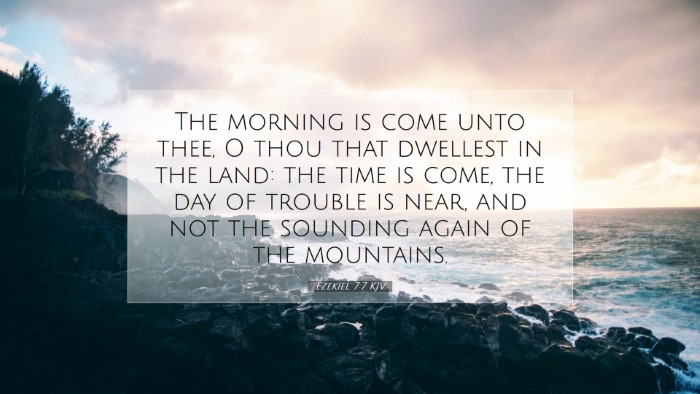Ezekiel 7:7 Commentary
Verse: "The morning is come unto thee, O thou that dwellest in the land: the time is come, the day of trouble is near, and not the sounding again of the mountains."
Understanding the Context
The Book of Ezekiel stands as a prophetic warning and an expression of God's judgment against Israel. The prophet Ezekiel, called to ministry during a time of national crisis, delivers God's message of impending doom, particularly focused on the consequences of Israel's sins.
In Ezekiel 7:7, the imagery of morning signifies a new phase, contrasting with the preceding darkness of sin and judgment. The land represents not just a physical territory but also a spiritual condition—indicative of the people’s covenantal relationship with God.
Exegesis of Ezekiel 7:7
This verse emphasizes the immediacy of divine judgment. The phrase "the time is come" illustrates a point of no return; the divine decrees have reached their fulfillment. The "day of trouble" acts as an ominous reminder of the consequences tied to Israel's persistent rebellion.
Key Themes
- Imminence of Judgment: Both Henry and Barnes underscore that God’s patience has been exhausted, leading to a decisive moment where mercy is withheld.
- Collective Desperation: Adam Clarke suggests that this proclamation serves to awaken a sense of urgency among the people; it is a call to recognize their dire state.
- Spiritual Blindness: The imagery of mountains not sounding again points to silence where once there was proclamation of joy—a metaphor for the loss of spirituality and the void left by God’s absence.
Divine Justice and Its Implications
In his commentary, Matthew Henry reflects on the nature of God’s justice, pointing out that justice must be upheld, and thus, the impending judgment is not arbitrary but a necessary consequence of persistent disobedience. Justice, intertwined with mercy, illustrates a God who desires repentance but will ultimately uphold His righteousness.
Albert Barnes draws attention to the "morning" metaphor, portraying a new reality where darkness is dispelled, yet ushering in dreadful circumstances. The dawn signifies clarity, yet what is revealed is the stark reality of the nation's condition.
Theological Reflections
This verse beckons deep theological reflection on God's character. The timing of divine intervention could lead one to ponder God's patience and willingness to forgive. Yet, when faced with repeated transgressions, it becomes evident that divine justice requires accountability.
Pastoral Applications
- Awareness of Sin: Pastors should point out the importance of recognizing our spiritual standing before God and the swift consequences of sin.
- Call to Repentance: Encouraging the congregation to view this verse as a call to urgent repentance rather than despair, championing the hope found in God’s mercy if one chooses to return to Him.
- Understanding Time: The ‘time is come’ motif serves as a reminder of the urgency of faith and the necessity of living lives aligned with God's will.
Conclusion
Ezekiel 7:7 serves a dual purpose—it's both a warning and a solemn reflection on the state of God's people. For today’s church, it should provoke a serious examination of individual and collective spiritual lives in the face of God’s impending justice. As history often shows, the folly of ignoring divine warnings can lead to significant loss.
In reflection, we are urged not to take these warnings lightly but to consider the depth of God's love that continually calls us back to righteousness, even amidst the reality of judgment.


